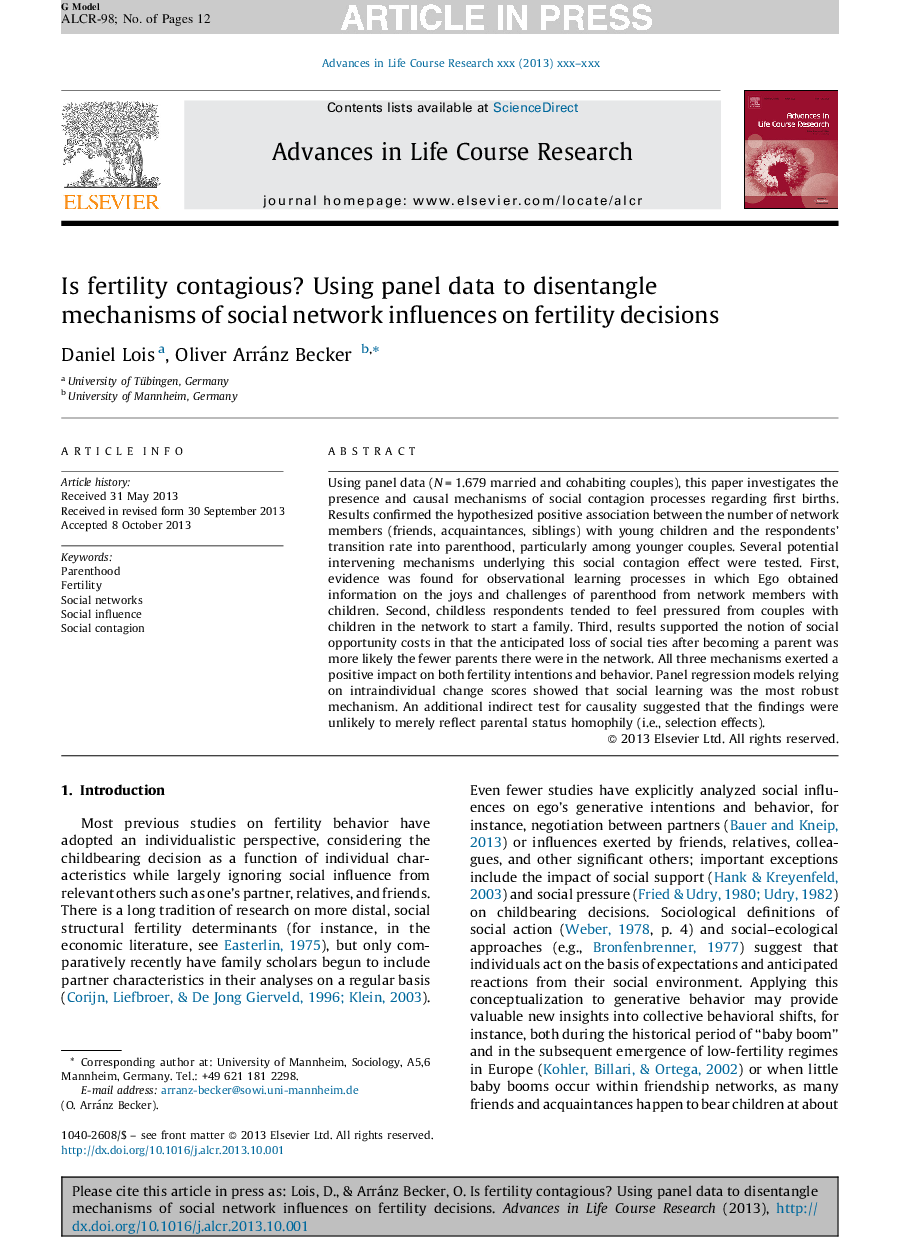| Article ID | Journal | Published Year | Pages | File Type |
|---|---|---|---|---|
| 6785088 | Advances in Life Course Research | 2014 | 12 Pages |
Abstract
Using panel data (NÂ =Â 1.679 married and cohabiting couples), this paper investigates the presence and causal mechanisms of social contagion processes regarding first births. Results confirmed the hypothesized positive association between the number of network members (friends, acquaintances, siblings) with young children and the respondents' transition rate into parenthood, particularly among younger couples. Several potential intervening mechanisms underlying this social contagion effect were tested. First, evidence was found for observational learning processes in which Ego obtained information on the joys and challenges of parenthood from network members with children. Second, childless respondents tended to feel pressured from couples with children in the network to start a family. Third, results supported the notion of social opportunity costs in that the anticipated loss of social ties after becoming a parent was more likely the fewer parents there were in the network. All three mechanisms exerted a positive impact on both fertility intentions and behavior. Panel regression models relying on intraindividual change scores showed that social learning was the most robust mechanism. An additional indirect test for causality suggested that the findings were unlikely to merely reflect parental status homophily (i.e., selection effects).
Related Topics
Physical Sciences and Engineering
Mathematics
Statistics and Probability
Authors
Daniel Lois, Oliver Arránz Becker,
